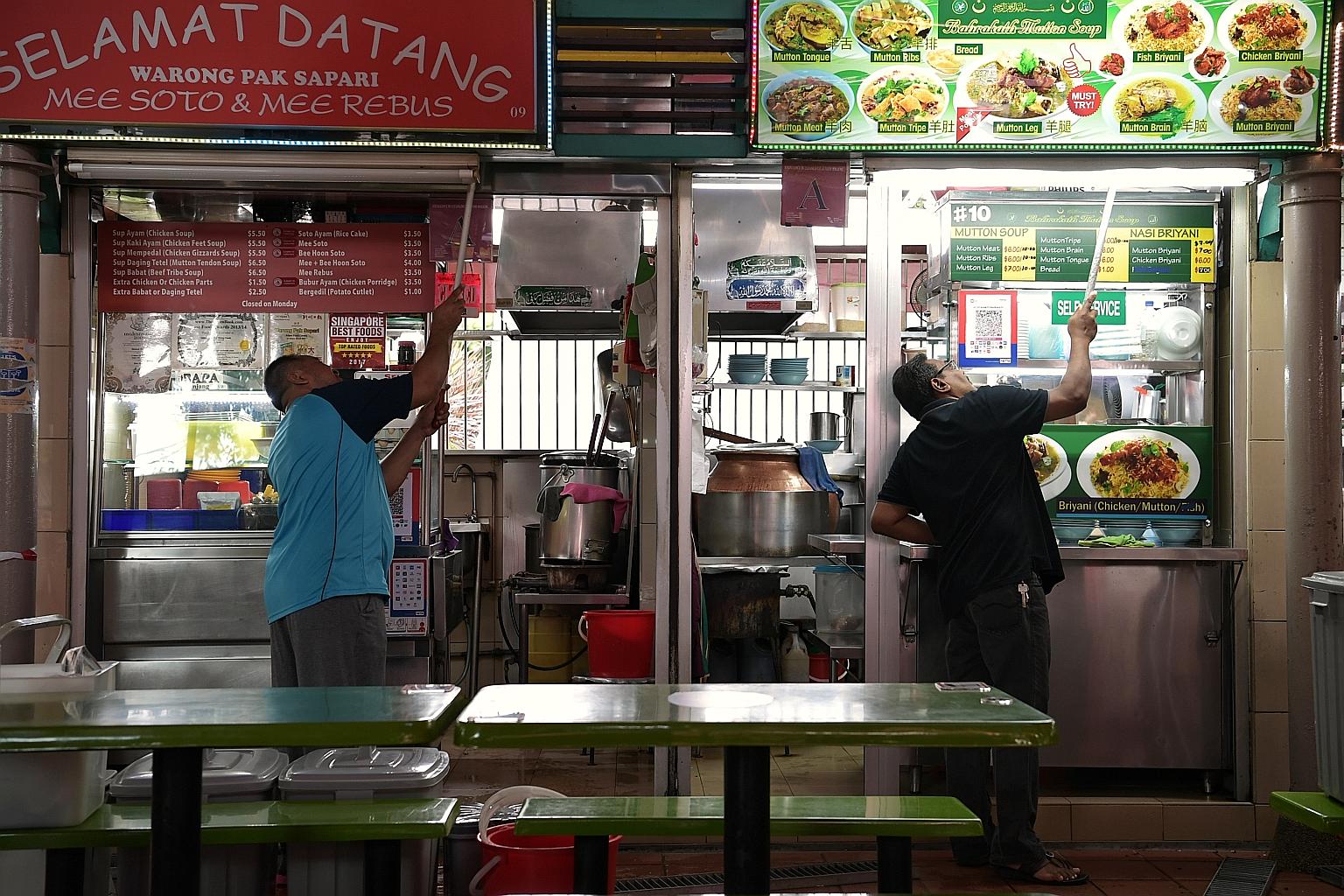Coronavirus outbreak
New cleaning norms for schools, hawker centres
Law to be amended to require such places, and childcare and eldercare facilities are disinfected regularly
Sign up now: Get ST's newsletters delivered to your inbox

Hawkers cleaning their stalls at Adam Road Food Centre on Monday. Under the SG Clean initiative launched last month, stalls that meet cleanliness requirements get an SG Clean quality mark.
ST PHOTO: KUA CHEE SIONG
Amendments to the Environmental Public Health Act will be made this year to lay down mandatory baseline cleaning standards at places such as schools, childcare and eldercare centres, and hawker centres.
Managers of these premises will have to set out an environmental sanitation programme, and follow a regime for proactive and thorough cleaning and disinfection at prescribed minimum frequencies. These include areas away from the public, like bin centres.
The new rules will be progressively implemented from next year, starting with premises with high footfall and higher-risk occupants, said Senior Minister of State for the Environment and Water Resources Amy Khor.
The National Environment Agency (NEA) launched the SG Clean initiative last month to raise public hygiene standards amid the coronavirus outbreak, starting with hawker centres.
"SG Clean seeks to turn the current crisis into an opportunity, by uplifting the standards of public hygiene and sustaining them," Dr Khor told Parliament during the debate on her ministry's budget.
"It is to be a whole-of-nation movement to instil a national 'keep clean culture' for the long term, beyond the battle with Covid-19."
Under the scheme, hawker stalls that meet cleanliness requirements get an SG Clean quality mark. Hawker centres are given the mark for meeting hygiene standards in aspects such as toilet cleanliness and pest management.
"Cleanliness and hygiene is a first line of defence against evolving public health threats," Dr Khor said. "We do not know how long Covid-19 will last. We are entering a new situation where enhanced personal hygiene habits and social responsibility have to be an integral part of our lives."
The NEA pointed out that the multiple incidences of gastroenteritis that affected pre-schools in 2018 highlighted the need for improvements to cleaning standards.
It said that as various sectors have different needs, standards and requirements would vary, and NEA will "calibrate the requirements to minimise compliance costs" for the premises' managers.
The Singapore Food Agency has also stepped up efforts on food safety.
Establishments serving vulnerable groups such as children and the elderly must keep retention samples that will be used to assist with investigations in the event of a gastroenteritis outbreak.
Those licensed to provide catering services will also be required to install closed-circuit television cameras in food handling areas.
Dr Khor also announced that about 14,000 hawkers will receive a 50 per cent waiver of their stall rental fees this month. They will get a 25 per cent rental waiver next month, and 25 per cent in May. The one-month rental waiver, with a minimum sum of $200, is expected to help tenants in 114 hawker centres offset the hit from reduced footfall.


